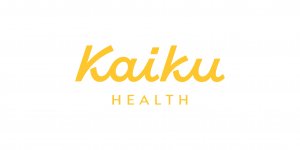Cancer vaccine technology to fight COVID-19
Our member Immunitrack has joined forces with Intavis on a project that may help the development of a Covid-19 vaccine.
The two companies are attempting to identify the viral proteins that will stimulate an immune response against the coronavirus implicated in the current outbreak, namely Covid-19.
Specifically, Immunitrack and Intavis aim to identify the viral epitopes that should be included in a vaccine. Viral epitopes are (usually) parts of viral proteins that are recognised by the host’s (i.e. human in this case) immune system as a threat. Once the epitopes are ‘seen’, an immune response is then triggered in an attempt to clear the virus. Some epitopes trigger better immune responses than others.
To elaborate on the above: when a virus infects human cells, epitopes from the virus are bound to certain receptors that exist on the surfaces of human cells. These receptors are called MHCI.
Immunitrack develops cancer vaccines by identifying which epitopes will stimulate an antibody-driven immune response and which epitopes will stimulate a cellular response.
The challenging task is to identify the correct epitopes i.e. the epitopes that will evoke an efficient immune response, against Covid-19 in this case. There are some software epitope prediction tools available, but most of these only work on Caucasian populations and perform less well on Asian populations. This is because the genes that determine MHC activity differ between populations.
Together with researchers at the University of Copenhagen, Immunitrack performed a computer simulation with ten of the most common MHC genetic variations (or alleles) in the Asian population. They could then identify 100 Covid-19 epitopes that might be recognised by these Asian MHC variants.
Immunitrack has developed a technology called NeoScreen ® that is used in cancer vaccine development. Using NeoScreen ®, Immunitrack was able to carry out lab studies to assess whether COVID-19 epitopes predicted to bind MHC could actually form a complex with these molecules and likely stimulate an immune response.
Immunitrack hopes this data will help vaccine developers determine which coronavirus epitopes will trigger an effective immune response against Covid-19. These epitopes can then be included in a potential Covid-19 vaccine to help control the spread of or eradicate the disease.
Several other healthcare organisations, including pharmaceutical and biotech companies, across Europe have also joined the race to develop a vaccine against the coronavirus. All of them are still at a pre-clinical stage. Read this news round-up from Labiotech.eu to see which other companies are involved. The first corona clinical vaccine trial has now begun in the US, but even in the best-case scenario the vaccine will not be available to the wider public for at least one year.





 Hush Naidoo / Unsplash
Hush Naidoo / Unsplash






